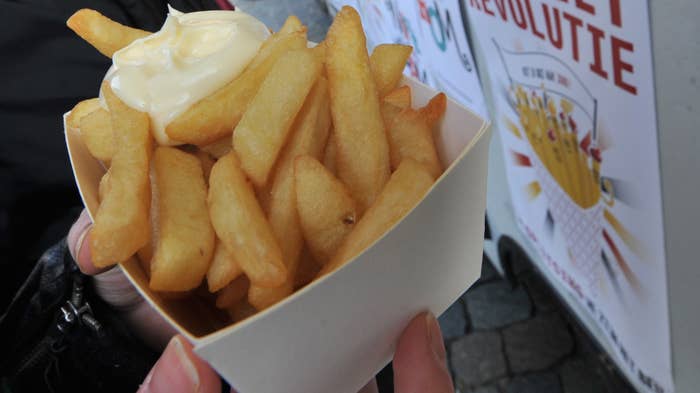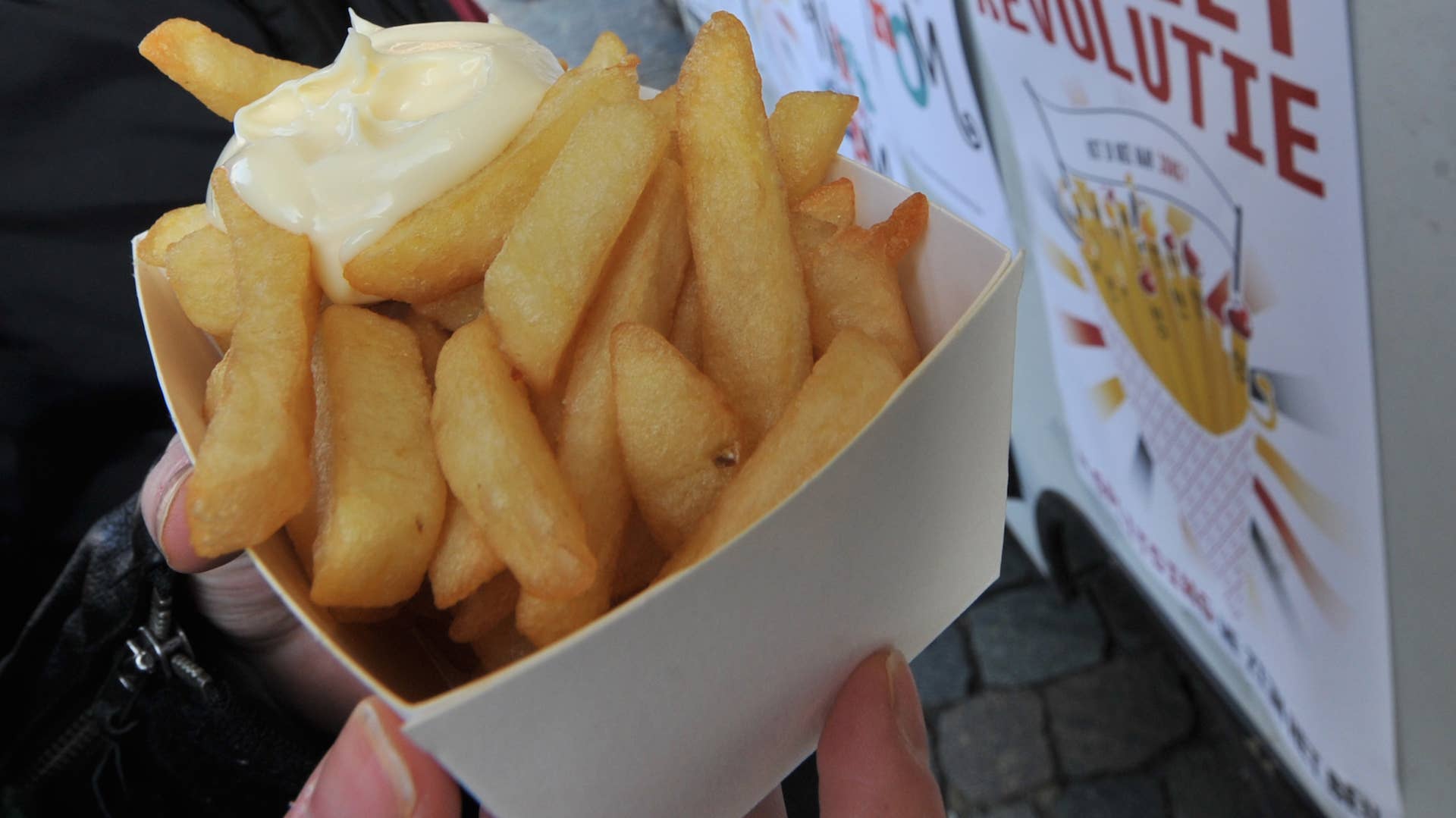
As the world tries to fend off a global pandemic, Belgians are been called to duty.
According to CNBC, the coronavirus outbreak has led to a surplus of potatoes in Belgium. Normally, potatoes are in high demand to feed the country's desire for its famous frites (their version of fries). But with the country on lockdown, citizens have been unable to frequent bars and restaurants and indulge in the country's national dish.
Romain Cools, the secretary-general of Belgian potato industry body Belgapom, told CNBC that close to 750,000 tons of potatoes will not be processed this year due to the pandemic. This will mostly fall on the shoulders of the frozen potato sector, which makes up for around 75% of potato processing. To combat this, Belgapom is urging citizens to increase their weekly intake of frites.
"We’re working with supermarkets to see whether we can launch a campaign asking Belgians to do something for the sector by eating fries — especially frozen fries — twice a week during the coronavirus crisis," Cools said. "What we are trying to do is to avoid food waste, because every lost potato is a loss."
Belgium instituted its nationwide lockdown on March 18. Per Johns Hopkins University, the country has 46,687 coronavirus cases as of Tuesday, with over 7,000 deaths. But with curve believed to be flattened, Belgian Prime Minister Sophie Wilmes revealed that the country will start reopening in phases beginning on May 4. But with bars and restaurants closed until June 8, Belgapom will continue pushing the home consumption of fries.
"To be very honest, the effect on potato consumption will probably last for months, and we can only try to find solutions where the solutions are — for us in Belgium, that could be pushing home consumption," Cools explained. "We’ve also asked farmers not to plant that many potatoes for the next season because we believe this season will take some extra months away from next year by postponing processing."

